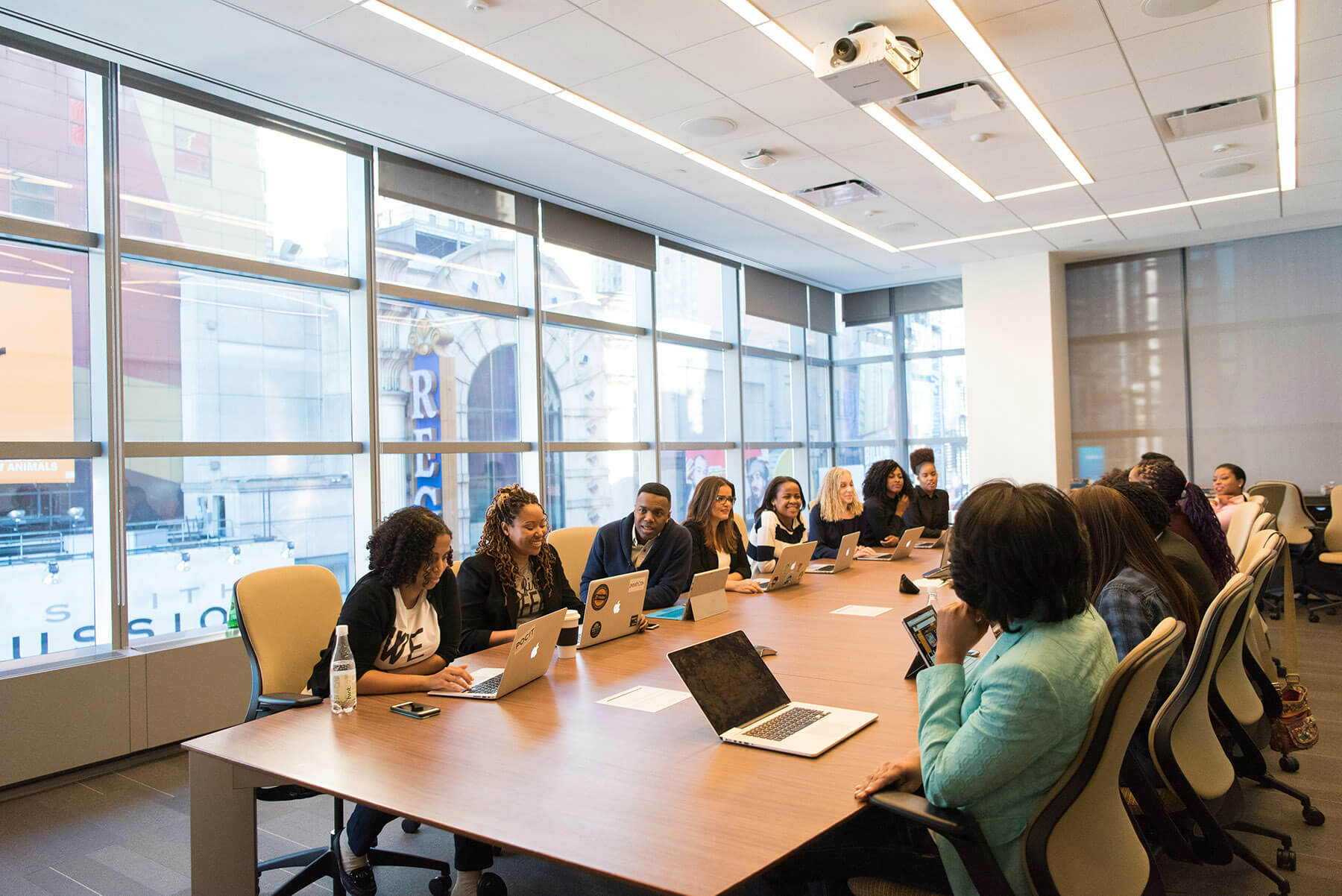IA Insights > Blog
Take a Stand for Democracy
A message from Interaction Associates CEO, Barry Rosen
It’s now January 2022 and American Democracy is at a major crossroads. You’ve likely heard or read that assertion many times on cable TV, online editorials, and virtual community forums. President Biden has called on Congress to pass new voting rights legislation but chances for Senate approval are uncertain. In reaction, you may feel anxious, sad, outraged, or despondent, i.e., yukky feelings. You may also wonder what to think, where to stand, and, most importantly (I think), what to do in the face of the message: American Democracy is at a major crossroads.
I’ve written this dispatch to tell you how, as the leader of a company that has been in operation for 52 years and served over 250 Fortune 500 companies, I’m thinking about American Democracy and what our company is doing to make conscious choices at this crossroads.
A Strategic Moment
A crossroads is an intersection of two or more roads and, metaphorically speaking, a point at which a crucial decision must be made and/or action taken that will have far-reaching consequences. President Lincoln said that democracy means government of, by and for the people. Using that definition, we each stand, as individuals and members of families and communities, at a crossroads.
Introducing a term our instructors use in IA learning programs, arriving at a crossroads is a strategic moment. We can choose to deny what’s happening (Don’t Look Up!), remain oblivious to the situation, blame someone for not fixing things, or leave it to someone else to deal with. With a little help from our friends and better angels, we can share some responsibility and declare: “This is a situation that I, in my own small way, am going to do something about!”
Thunder Clouds
Democratic backsliding refers to the deterioration of democratic norms, institutions and practices. Here are three present threats to democracy as I see them.
- Aggressive moves to restrict the participation of citizens in the electoral processes: According to the Brennan Center for Justice, “19 states have enacted 33 laws that will make it harder for Americans to vote,” making 2021 an unprecedented year. “Over 425 bills with provisions that restrict voting access were introduced in 49 states in 2021 legislative sessions.”
- Social media echo chambers, filter bubbles, and fact-free belief reinforcement: Over the last decade, social media has radically changed the ways we share opinions and come to conclusions about what’s so and what’s right. Americans over 12 years of age spend more than 2.5 hours on social media per day, returning again and again to the same sites for interaction, entertainment, and information. Making sense of what’s going has also taken the form of depending on voices of authority to explain our subjective reality. Some of those voices are authoritarian, people who peddle fear, reject democratic inclusiveness, and espouse simple “us or them” solutions. This is a troublesome trend for our democracy and for rights of less-enfranchised communities.
- Pandemic-induced isolation, disconnection, and polarization: Confined to the safety of our homes, we’ve been less able to organize for what we think is the right action or to meet with elected representatives to advocate for change. We’ve also lost some social intelligence muscle, including the patience to really listen to each other and the ability to engage in interesting, evocative conversations. Instead of connecting in real-time with friends, family, co-workers, and potential political allies, we fall back on the easy chair of online media and TV, vicariously watching and listening to people who are apparently living life more fully than we. Signs of social polarization, relatively contained before the pandemic, have since intensified.
A Vision of Success
Rather than being a spectator event, our democracy depends on every citizen having the guaranteed right and equal access to vote for people to represent them at all levels of government. The candidates who receive the most votes win the opportunity to serve. Losing candidates, whether at the local, regional or national level, accept the loss and support the peaceful transfer of power. Accountable representatives collaborate to advance the interests of the greatest number of constituents.
Democracy develops into a healthy, effective, and sustainable method of governance when diverse groups participate and inform creative problem-solving and vision-realizations conversations. The processes of decision-making are transparent. Our school systems are empowered to help build the next generation of voting citizens who develop the sense of responsibility and skill to engage in civil discourse and political service.
What is To Be Done?
In his book, Politics Is for Power, Eitan Hersh writes: “A third of Americans say they spend two hours or more each day on politics. Of these people, four out of five say that not one minute of that time is spent on any kind of real political work. It’s all TV news and podcasts and radio shows and social media and cheering and booing and complaining to friends and family.”
I have participated in this pastime. Eitan calls it political hobbyism. Real political work, he asserts, is action in the service of change, not information in the service of outrage.
One of Interaction Associate’s core values is effective stakeholder voice. Here’s what Interaction Associates will be doing this year to demonstrate that value-in-action and help gird our democracy against it current threats and enemies:
- Advocate for voting rights protections: IA employees will receive 5 days (40 hours) paid time in 2022 to work on voting rights initiatives.
- Train people to facilitate civil conversations: We will offer training at a nominal cost to community members who want to learn how to effectively engage others in collaborative conversations about addressing local and regional issues.
- Vote and help others get to the polls: IA employees will receive a full day’s pay on National Election Day to go the polls and support others to the polls or to get their official ballots to election offices.
Please let me hear from you about this message and how your organization is taking a stand for democracy.
Barry Rosen
brosen@interactionassociates.com
A few sources of data for this article:
https://www.brennancenter.org/our-work/research-reports/voting-laws-roundup-october-2021
https://www.nytimes.com/2022/01/09/opinion/trump-bannon-trumpism-democracy.html
https://www.nytimes.com/2022/01/05/opinion/jan-6-jimmy-carter.html
https://www.healthline.com/health/social-media-addiction
https://truelist.co/blog/social-media-addiction-statistics/
https://www.pnas.org/content/118/9/e2023301118
https://letter.ly/how-much-time-do-people-spend-on-social-media/
About Barry Rosen
The CEO of Interaction Associates, Barry consults with company leaders on how to empower people and teams to work across functions and other boundaries to get important things done. He leads the assembly of IA's collaboration tools and learning content, including programs on facilitative leadership, inclusive teams, and task-focused group facilitation.





